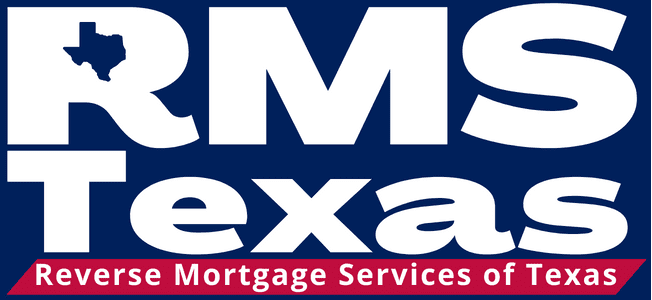
Financial Planning Tips for Texas Baby Boomers
Preparing for Retirement
Retirement is a significant milestone that marks the transition into a phase of life where financial stability can translate into peace of mind and the freedom to enjoy well-deserved leisure and personal pursuits. For Texas Baby Boomers, whether you're already reveling in retirement or poised to step away from the workforce, prudent financial planning is key to ensuring that your golden years are as lustrous as the Lone Star State itself. Here are some tips to help you navigate the financial landscape of retirement with confidence.
Understand Your Retirement Income Sources
One of the first steps in financial planning is understanding where your retirement income will come from. Common sources include Social Security benefits, pensions, savings, investments, and retirement accounts like 401(k)s or IRAs. Texans should also consider any other income streams, such as rental income or part-time work.
Social Security Benefits
In Texas, as elsewhere in the U.S., Social Security provides a base level of income that you can supplement with other savings. Remember that the age at which you choose to start taking Social Security benefits can significantly affect your monthly payments. Delaying benefits beyond your full retirement age can result in larger checks.
Pensions and Annuities
If you’re lucky enough to have a pension, understand the options you have for taking this money, be it lump sum or regular payments. Annuities can also provide a steady income, but make sure you understand the terms and fees involved.
Budgeting for Retirement in Texas
Budgeting is not just for those in the workforce. In retirement, it becomes even more crucial to manage your expenses, ensuring they align with your fixed income.
Calculate Essential Costs
Consider your essential costs such as housing, food, utilities, healthcare, and insurance. Remember that healthcare costs typically increase as you age, so plan for that as well.

Discretionary Spending
Consider your lifestyle preferences. Do you plan to travel, pursue hobbies, or spoil the grandchildren? Such activities should be factored into your budget, but be prepared to adjust plans as financial situations change.
Managing Taxes
Even in retirement, taxes are a consideration. Texas does not have a state income tax, which can be beneficial for retirees. However, you may still be subject to other taxes, such as those on distributions from retirement accounts. Plan with a tax professional to optimize your tax situation.
Property Taxes
While Texas does not have state income tax, property taxes are relatively high. However, Texas offers exemptions for seniors that can help reduce this burden.
Estate Planning
Estate planning is about ensuring your financial wishes are honored. This includes drafting a will, setting up trusts if necessary, and making sure beneficiaries are up to date on all accounts.
Power of Attorney
Establish a durable power of attorney so that someone you trust can handle your financial affairs if you become unable to do so.
Health Care Directives
Advance health care directives and living wills can outline your wishes for medical treatment in case you're not able to communicate them.
Invest Wisely
Your investment strategy may need to shift as you move into retirement. The focus often moves from accumulation to preservation and income generation.
Conservative Investments
Consider conservative investments that can provide stable income, such as bonds or dividend-paying stocks. Consult with a financial advisor to balance your need for income with the need to protect your principal.
Diversification
Diversify your portfolio to protect against market volatility. This can help ensure that a downturn in one investment doesn't significantly impact your overall financial health.
Utilize Home Equity
When you tap into your stagnant home equity, your financial resources increase. Through a reverse mortgage, you can increase your monthly income, preserve your investment portfolio when the market is volatile and/or simply enjoy life with more financial stability.
Healthcare and Insurance
Healthcare can be one of the largest expenses in retirement. It's essential to understand Medicare and the various supplemental plans available. Long-term care insurance is also something to consider as it can cover costs not typically included in Medicare.
Medicare
Enrollment periods for Medicare are strict, and missing them can result in penalties. Understand the parts of Medicare and what they cover, and consider Medigap policies for additional coverage.
Long-Term Care Insurance
Long-term care can deplete your savings quickly if you're not insured. Evaluate the costs and benefits of a policy early in retirement.
Retirement planning doesn't end when you retire; it's an ongoing process. For Texas Baby Boomers, taking control of your financial future can lead to a fulfilling and secure retirement. Stay informed, seek advice from professionals, and most importantly, enjoy the rich experiences and opportunities that your retirement years in Texas have to offer.
Stay proactive, Texans, and remember that in the realm of retirement, the sage advice of planning, budgeting, and staying adaptable can lead to a prosperous and vibrant post-career life. Cheers to your retirement!
Note: This information is for reference only - we do not offer legal or financial advice. If you have questions in that regard, please contact an attorney, CPA or financial planner.

Set-Up a Confidential Discussion
If you or your client are unsure about the details of a reverse mortgage, has questions, or wishes to get started, feel free to schedule a time on Robb's calendar.

Robb Hamilton
NMLS# 358150
Broker License #2407110

This material is not provided by, nor was it approved by the Department of Housing & Urban Development (HUD) or by the Federal Housing Administration (FHA). It is not intended to be a substitute for legal, tax or financial advice. Consult with a qualified attorney, accountant or financial advisor for additional legal or tax advice.
*There are some circumstances that will cause the loan to mature and the balance to become due and payable. The borrower(s) must continue to pay for property taxes and insurance and maintain the property to meet HUD standards or risk default. Credit is subject to age, minimum income guidelines, credit history, and property qualifications. Program rates, fees, terms and conditions are not available in all states and subject to change.
Homeowners must be 62 years of age or older and live in the home as their primary residence. Homes must meet FHA/HUD minimum property standards. Borrowers must maintain hazard and flood insurance premiums, property taxes, utilities and make any property repairs. Although there are no mandatory monthly principal and interest mortgage payments, interest accrues on the portion of the loan amount disbursed if no payments are made. Program rates, fees, terms and conditions are not available in all states and subject to change. At the conclusion of a reverse mortgage, the borrower must repay the loan and may have to sell the home or repay the loan from other proceeds. Charges will be assessed with the loan, including an origination fee, closing costs, mortgage insurance premiums and servicing fees. The loan balance grows over time and interest is charged on the outstanding balance. The borrower remains responsible for property taxes, hazard insurance and home maintenance, and failure to pay these amounts may result in the loss of the home. Interest on a reverse mortgage is not tax-deductible until the borrower makes partial or full re-payment.
NMLS Consumer Access
Disclosures & Licensing
Texas Consumer Complaint Disclosure |
Privacy Policy
Robb Hamilton |All Rights Reserved | RMS Texas
Website managed by Wordflirt






